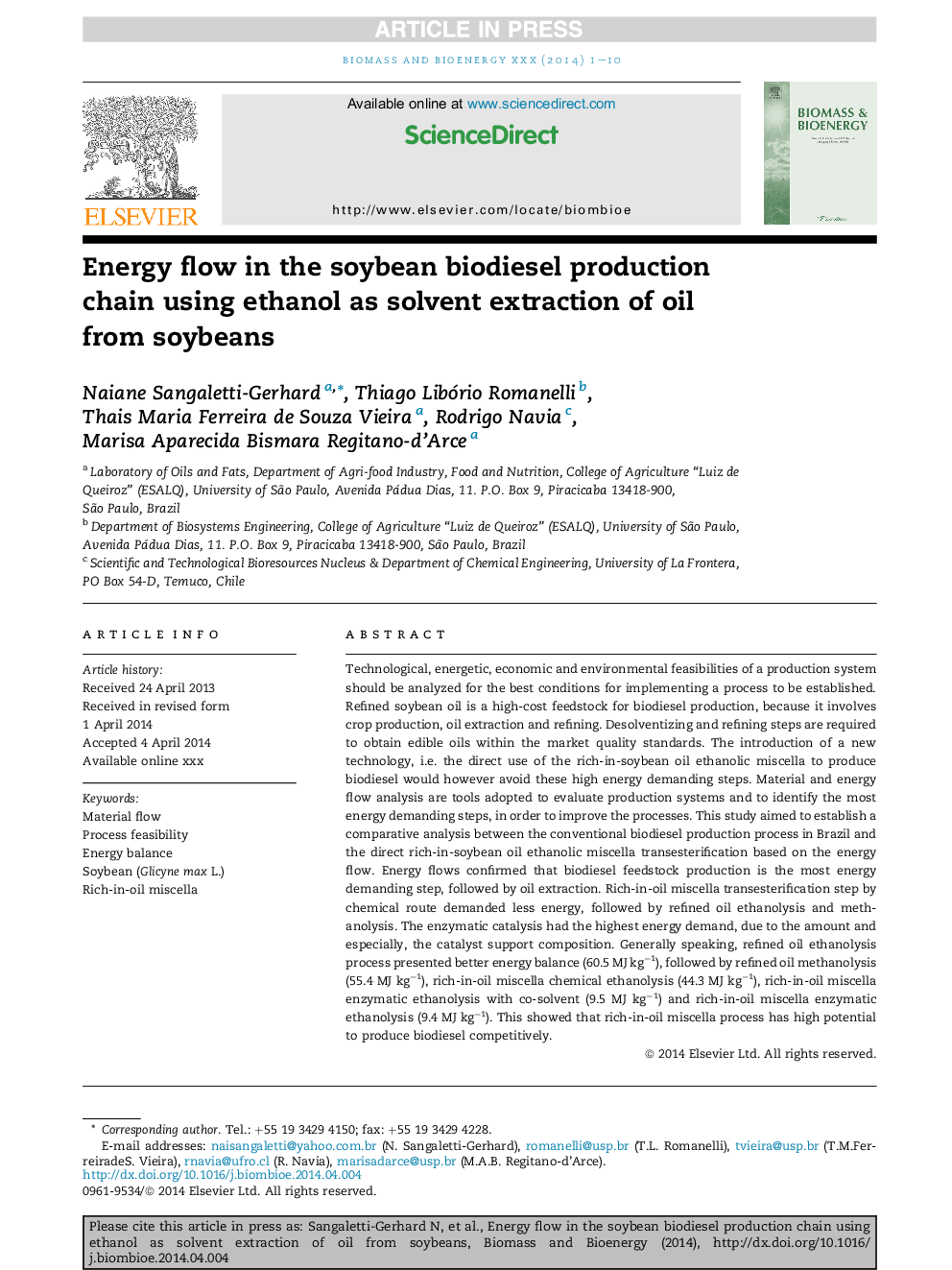| Article ID | Journal | Published Year | Pages | File Type |
|---|---|---|---|---|
| 7064659 | Biomass and Bioenergy | 2014 | 10 Pages |
Abstract
Technological, energetic, economic and environmental feasibilities of a production system should be analyzed for the best conditions for implementing a process to be established. Refined soybean oil is a high-cost feedstock for biodiesel production, because it involves crop production, oil extraction and refining. Desolventizing and refining steps are required to obtain edible oils within the market quality standards. The introduction of a new technology, i.e. the direct use of the rich-in-soybean oil ethanolic miscella to produce biodiesel would however avoid these high energy demanding steps. Material and energy flow analysis are tools adopted to evaluate production systems and to identify the most energy demanding steps, in order to improve the processes. This study aimed to establish a comparative analysis between the conventional biodiesel production process in Brazil and the direct rich-in-soybean oil ethanolic miscella transesterification based on the energy flow. Energy flows confirmed that biodiesel feedstock production is the most energy demanding step, followed by oil extraction. Rich-in-oil miscella transesterification step by chemical route demanded less energy, followed by refined oil ethanolysis and methanolysis. The enzymatic catalysis had the highest energy demand, due to the amount and especially, the catalyst support composition. Generally speaking, refined oil ethanolysis process presented better energy balance (60.5Â MJÂ kgâ1), followed by refined oil methanolysis (55.4Â MJÂ kgâ1), rich-in-oil miscella chemical ethanolysis (44.3Â MJÂ kgâ1), rich-in-oil miscella enzymatic ethanolysis with co-solvent (9.5Â MJÂ kgâ1) and rich-in-oil miscella enzymatic ethanolysis (9.4Â MJÂ kgâ1). This showed that rich-in-oil miscella process has high potential to produce biodiesel competitively.
Keywords
Related Topics
Physical Sciences and Engineering
Chemical Engineering
Process Chemistry and Technology
Authors
Naiane Sangaletti-Gerhard, Thiago Libório Romanelli, Thais Maria Ferreira de Souza Vieira, Rodrigo Navia, Marisa Aparecida Bismara Regitano-d'Arce,
